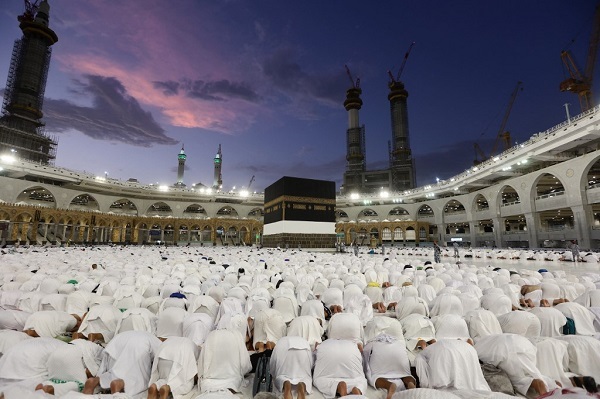How Hajj Enhances Tolerance, Peaceful Coexistence

Hajj, the yearly journey of faith that millions of Muslims make to Mecca, is a momentous event for the Islamic world. It is a spiritual adventure that unites believers from all corners of the globe in one sacred place for one noble goal. The Hajj pilgrimage is not just a ritual; it is an experience that can foster tolerance and harmony.
The pilgrimage to Mecca is a voyage of self-discovery and spiritual growth. It is a time for Muslims to examine their lives, seek forgiveness, and renew their faith. The Hajj experience is unique, bringing together people from diverse lands, languages, and traditions. Despite the differences, pilgrims share a common bond of faith and purpose.
The pilgrimage offers an opportunity for people to mingle and learn from each other. It is a chance for Muslims to widen their perspective of the diversity of the Islamic world and the different cultural expressions within it.
During Hajj, pilgrims gather in the same place, perform the same rituals, and uphold the same values. The journey creates a sense of solidarity and belonging that surpasses national, ethnic, and cultural borders.
The Hajj experience is also an opportunity for Muslims to practice tolerance and respect for others. The pilgrimage demands patience, endurance, and humility, as pilgrims walk long distances, sleep in tents, and brave the heat of the desert.
The physical challenges of the journey help to cultivate a sense of empathy and compassion for others, as pilgrims share the same hardships.
Furthermore, the Hajj journey requires pilgrims to interact with people from different backgrounds and cultures. The experience of meeting and communicating with people from different parts of the world can help to dissolve barriers and create a sense of understanding and respect for others.
The ritual provides an opportunity for people to appreciate each other's differences and celebrate their commonalities.
One of the verses in the Holy Quran that relates to the notion of tolerance has been mentioned in Surah Al-Hujurat: "O mankind, indeed We have created you from male and female and made you peoples and tribes that you may know one another. Indeed, the most noble of you in the sight of Allah is the most righteous of you. Indeed, Allah is Knowing and Acquainted." (Quran 49:13)
This verse speaks to the hearts of all people, regardless of their gender, while also acknowledging the diversity of races and tribes to celebrate the principle of racial equality.
And above all, it counsels the believers to look beyond outward appearances and judge people by their inner qualities of piety and righteousness.
In addition, the Hajj pilgrimage involves acts of charity and generosity. Pilgrims are urged to donate to the poor and needy, to provide food and water to fellow pilgrims, and to offer assistance to those in need. These acts of kindness and compassion help to promote a culture of giving and caring and encourage peaceful coexistence.
Moreover, the Hajj pilgrimage teaches pilgrims about the importance of peace and justice in Islam. Pilgrims are reminded of the rights and duties of Muslims towards each other and God. They are also reminded of the examples of tolerance and forgiveness shown by Prophet Muhammad (PBUH) and his companions in Mecca. They are inspired to follow in their footsteps and spread peace and justice in their societies.
The Hajj pilgrimage is an experience that can foster tolerance and harmony. It unites people from different backgrounds and cultures in one sacred place for one noble goal, promoting a sense of solidarity and belonging. The journey offers an opportunity for personal growth, cultural exchange, charitable giving, and social justice.
By Mohammad Ali Haqshenas



